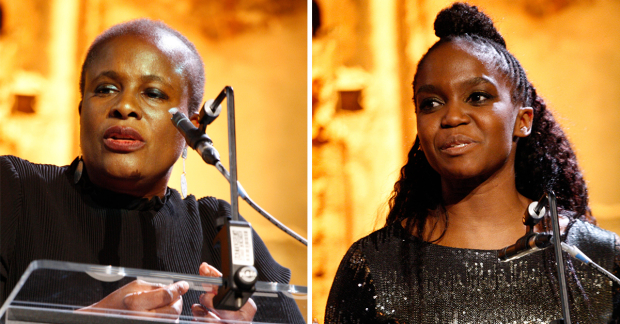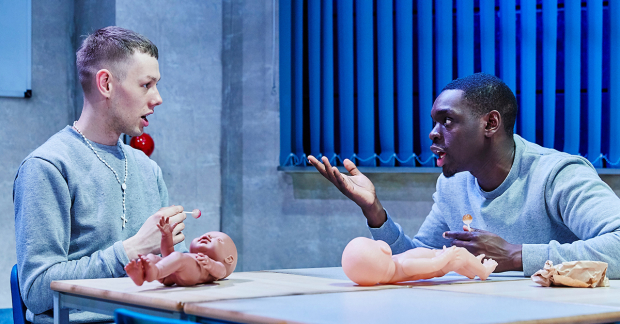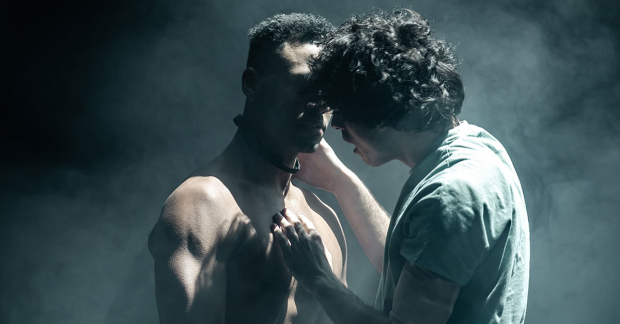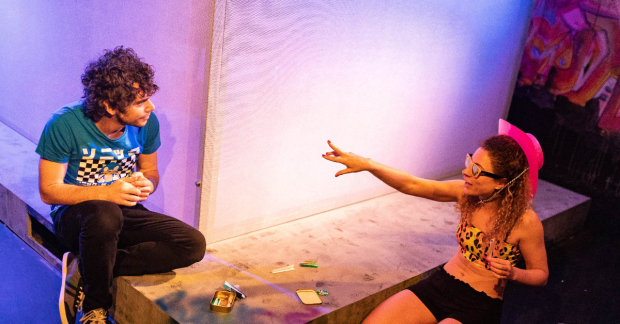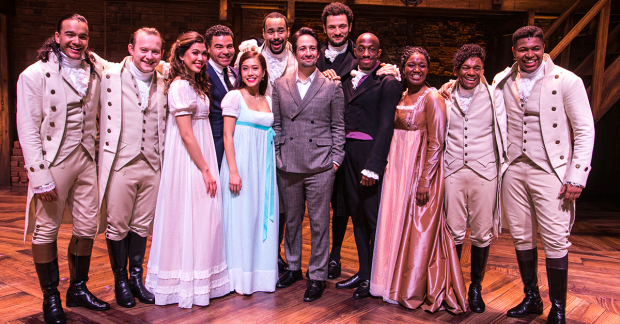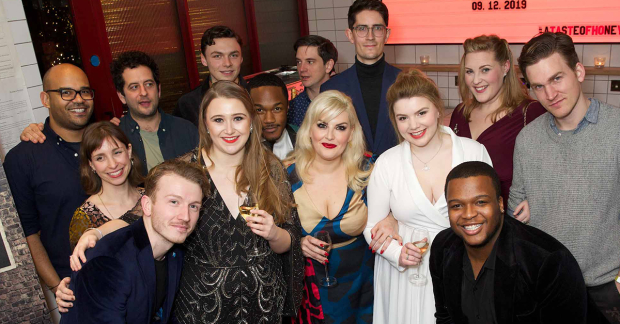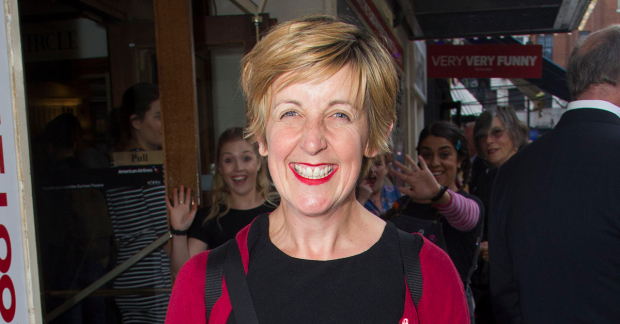Review: One Jewish Boy (Trafalgar Studios)
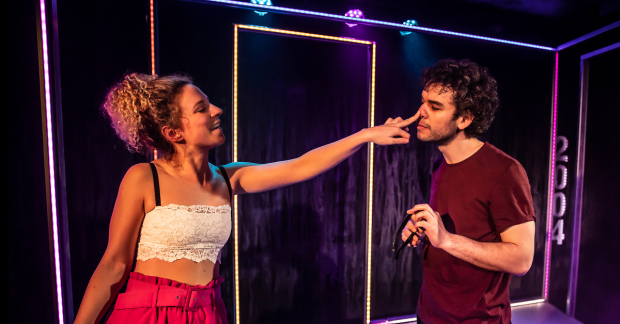
© Pamela Raith
If Stephen Laughton's excellent play wasn't so accomplished, it might still get a free pass for being relevant and thought-provoking. Turns out, it doesn't need one… One Jewish Boy is a cracking piece of theatre with fire in its belly, serious thoughts in its head and a driving force in its soul that pins you to your seat and forces you to listen. But it does so by stealth…
In telling this challenging but relatable story, Laughton disarms us with a pair of funny, likeable, contradictory characters. Mixed-race Alex and Jewish Jesse are on paper, pretty mismatched, but make for hugely engaging company, and turn out to be an interesting prism through which to refract some harsh modern realities.
The best way to get people to appreciate the 'bigger picture' is often to pare it down to individual lives, and that is precisely what Laughton does here. He takes the appalling recent upswing in anti-Semitic hate crime and filters it through the troubled mixed faith- and race- relationship of a modern London couple.
Jesse is adorable but nerdy and needy, from a wealthy Highgate family, while Alexis super-cool, council estate-raised and fiercely ambitious. They first meet on a comedown at an Ibiza rave and form a spiky but affectionate liaison. Between this initial connection and the other points in their fractious relationship that are depicted in the play, Jesse is the victim of a brutal physical assault because of his Jewish-ness and it is the fall-out from this that colours and ultimately poisons their union. It also powerfully focuses Jesse's attitude to his own heritage.
Both actors inhabit their roles with vigour and authenticity. As Jesse, Robert Neumark-Jones brilliantly embodies a kind but neurotic young man who's easy to love yet frustratingly hard to pin down. In the blink of an eye, he goes convincingly from puppy-dog submissive and suggestible to ranting furiously. There's an undertow of damaged vulnerability that makes it completely understandable, but it would still be a special kind of human that takes all that on.
Asha Reid's tough-but-tender Alex seems initially to be exactly that person, but it turns out she isn't always the easiest to live with either. If she sometimes reads more as mother figure than partner, that's entirely plausible, and when she realises finally that she can't save Jesse from himself, we as audience members share her grief. Watch Reid's face searching Jesse's as she tells him that she's pregnant and tries to read him for a reaction: it's truthful, spontaneous acting of the highest order.
Under Sarah Meadows's busy but never gimmicky direction, the actors create a couple who connect in many important ways yet feel as though they're constantly at sharp angles to each other: the audience wants to them to be happy together but senses that they probably won't be. Some of the dialogue sounds like they're improvising it on the spot and the effect is both delightful and, occasionally, authentically excruciating.
Laughton's writing sometimes tips over into the polemic – Jesse's diatribe against Alex over her unwillingness to allow their son's bris is plausible but dramaturgically clumsy – yet redeems itself in flashes of concise brilliance: when Jesse cries out to Alex that "there's scar tissue in my DNA", it speaks volumes about a person who has felt at a disadvantage from the day they were born.
If the conflation of Jesse's horrible beating with Alex's difficult childbirth feels a bit clumsy, it's a rare misstep in this otherwise admirable production. Georgia de Grey's neon-edged cage of a set and Benedict Taylor's throbbing, uneasy underlay of relentless music combine to create a restless urban landscape at once familiar yet threatening. The constant pop music references sometimes feel a bit overdone but prove useful in terms of identifying the period and passing of years (the play's action runs from early in this century up to 2020).
Impassioned and absorbing, this is a piece that celebrates the quirkiness of apparently 'normal' people while also warning against the complacency of thinking blind prejudice no longer exists. It packs a lot of power and truth into its 90 minutes. Engrossing stuff.



